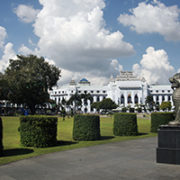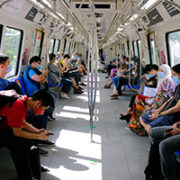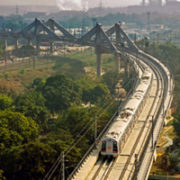Archive | Governance and public sector management RSS feed for this section
Economics, Governance and public sector management, Health, Social development and protection
 Governance and public sector management
Governance and public sector management
 Finance sector development, Governance and public sector management, Health, Regional cooperation and integration
Finance sector development, Governance and public sector management, Health, Regional cooperation and integration
 Governance and public sector management, Health
Governance and public sector management, Health
 Economics, Governance and public sector management
Economics, Governance and public sector management
 Economics, Governance and public sector management, Industry and trade, Private sector development
Economics, Governance and public sector management, Industry and trade, Private sector development
 Finance sector development, Governance and public sector management
Finance sector development, Governance and public sector management
 Governance and public sector management, Industry and trade, Information and Communications Technology, Private sector development
Governance and public sector management, Industry and trade, Information and Communications Technology, Private sector development
 Economics, Governance and public sector management, Industry and trade
Economics, Governance and public sector management, Industry and trade
 Governance and public sector management, Transport
Governance and public sector management, Transport

Toward a robust economic recovery from COVID-19 in Asia and the Pacific

The coronavirus disease (COVID-19) pandemic has been a truly global shock to public health, causing one of the most severe global economic downturns since the Great Depression of the 1930s. Against this context, the 2020 ADBI Annual Conference brought together leading academics, think tank researchers, and policy makers to discuss the impacts of COVID-19 and its policy implications, with a focus on Asia and the Pacific.
Stepping up civil service reforms in Myanmar

The coronavirus disease (COVID-19) has highlighted the importance of the civil service but has also, ironically, hindered its reform activities. Civil service personnel will have to work with government leaders to find the right balance between addressing public health and economic concerns and implementing policies for mitigating the effects of the pandemic. It is crucial that the civil service is equipped with the capacity and mindset to address this crisis.
The impacts of COVID-19 on financial stability and regional financial safety nets in ASEAN

The Association of Southeast Asian Nations (ASEAN) is making strong efforts to maintain financial stability amid the coronavirus disease (COVID-19) pandemic, mostly through national financial emergency measures for each member state. As a region, ASEAN has not yet formed a regional financial safety net to deal with a crisis like COVID-19.
Rare diseases in Asia and the Pacific must be tackled too

Unlike the coronavirus disease (COVID-19), few people will have heard of the rare disease Epidermolysis Bullosa (EB). It is an inherited genetic condition that affects the skin and can be fatal during infancy or early childhood for those suffering from its most severe forms. The condition causes the skin, both outside as well as inside the body, to blister and tear easily. Since the skin is unable to withstand normal wear and tear, it gets repeatedly wounded and the cells can become cancerous.
Challenging times for central banks: Low inflation, monetary policy, and digital currency

The coronavirus disease (COVID-19) outbreak has transformed the global monetary policy landscape. The sharp global economic slowdown caused by the spread of the virus and the various countermeasures embarked on by governments under states of emergency (such as quarantines, policies to restrict mobility, school closures, and restrictions and limitations on business operations) prompted many central banks to implement substantial monetary easing from March 2020 along with massive fiscal stimulus measures. As a result of these measures, a growing number of central banks have faced the effective (or zero) lower bound or approached it in their policy rates.
SMEs in global value chains: Catalysts for dynamic and inclusive economic growth

The world has been witnessing the active construction of global value chains (GVCs) by multinational corporations (MNCs) in recent decades. According to the World Bank (2020), the share of GVC trade in world trade increased rapidly from approximately 40% in 1990 to over 50% in 2007 before declining somewhat after the global financial crisis in 2007–2008. MNCs fragment production processes into various stages and locate them in various countries and places where the particular stages can be conducted most efficiently, or at least cost, in order to achieve an efficient production system.
Systemic power imbalances in responsible investments

The recent surge of interest in environmental, social, and governance (ESG) investments has brought with it closer scrutiny of the way in which ESG factors are evaluated as conditions before an investment can be categorized as such. Environmental factors have been receiving a lion’s share of the attention in these investments, which have been riding on the institutional clout lent unto them by green growth.
The value creation potential of platforms

The rapid success of modern platforms is a testament to their ability to scale efficiently to the needs of many while providing an undeniable and significant advantage over the older methods that had so far dominated value exchanges. Powered by the public Internet and robust local connectivity, digital platforms rose to the challenge of developing newer, more efficient alternatives in their respective focus areas.
Land readjustment in Japan: Beyond the myth of Japanese consensus and harmony

The landscape of Misato City in Japan has changed drastically in the last 35 years. In the 1980s, Shin-Misato Station was the Mushashino marshalling yard for freight services. Most of the land near the station was used for agriculture, but once residential houses increased and more people came to settle in the area the government built a passenger train station.
Thinking beyond the suitability of high-speed railway in India

In India, the project to build the country’s first 500-kilometer high-speed railway (HSR) from Mumbai to Ahmedabad is underway. For comparison, all top 10 economies in the world except the United States have constructed several HSR lines in the past 30 years. The People’s Republic of China (PRC) alone has built nearly 28,000 kilometers of HSR in the past 20 years. Nevertheless, opinion makers in India are expressing contradicting views, questioning whether it is suitable for the country to develop expensive infrastructure such as HSR.


Search
Subscribe / Connect to Asia Pathways
Subjects
- Agriculture and natural resources
- Blog
- Capacity development
- Climate change
- Economics
- Education
- Energy
- Environment
- Finance sector development
- Gender
- Governance and public sector management
- Health
- Industry and trade
- Information and Communications Technology
- Infrastructure
- Miscellaneous
- Population
- Poverty
- Private sector development
- Regional cooperation and integration
- Sanitation
- Social development and protection
- Transport
- Uncategorized
- Urban development
- Video Blog
- Water
Recent Posts
- Artificial intelligence: A new driver for inclusive growth and development?
- Increasing trust in cross-border e-commerce and artificial intelligence
- Enhancing access to maternal and newborn healthcare in developing Asia
- Can electric vehicles lead the way to a sustainable future?
- Mitigating climate-related sovereign risk to accelerate action on the climate emergency




Recent Comments